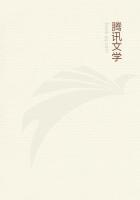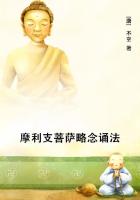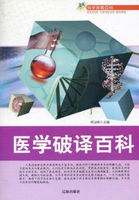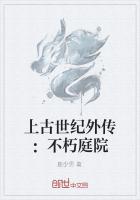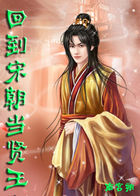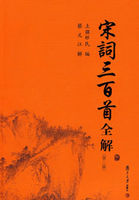Frank was staring at his father, amazed. Not until this moment had Paddy ever communicated man-to man with his oldest son. Shocked out of perpetual resentment, Frank realized that for all his proud boasting,Paddy loved Meggie more than he did his sons. He 38 found himself almost liking his father, so he smiled without the mistrust. "She's a bonzer little thing, isn't she?" he asked. Paddy nodded absently, engrossed in watching her. The horse blew its lips in and out, flapping; Meggie stirred, rolled over and opened her eyes. When she saw her father standing beside Frank she sat bolt upright, fright paling her skin.
"Well, Meggie girl, you've had quite a day, haven't you?" Paddy went over and lifted her out of the hay, gasping as he caught a whiff of her. Then he shrugged his shoulders and held her against him hard. "I got caned, Daddy," she confessed.
"Well, knowing Sister Agatha, it won't be the last time," he laughed, perching her on his shoulder. "We'd better see if Mum's got any hot water in the copper to give you a bath. You smell worse than Jarman's dairy." Frank went to the doorway and watched the two fiery heads bobbing up the path, then turned to find the bay mare's gentle eyes fixed on him. "Come on, you big old bitch. I'll ride you home," he told it, scooping up a halter.
Meggie's vomiting turned out to be a blessing is disguise. Sister Agatha still caned her regularly, but always from far enough away to escape the consequences, which lessened the strength of her arm and quite spoiled her aim.
The dark child who sat next to her was the youngest daughter of the Italian man who owned and operated Wahine's bright blue cafe. Her name was Teresa Annunzio, and she was just dull enough to escape Sister Agatha's attention without being so dull that it turned her into Sister Agatha's butt. When her teeth grew in she was quite strikingly beautiful, and Meggie adored her. During lesson breaks in the playground they walked with arms looped around each other's waists, which was the sign that you were "best friends" and not available for courting by anyone else. And they talked, talked, talked. One lunchtime Teresa took her into the cafe to meet her mother and father and grown-up brothers and sisters. They were as charmed with her golden fire as Meggie was with their darkness, likening her to an angel when she turned her wide, beautifully flecked grey eyes upon them. From her mother she had inherited an indefinable air of breeding which everyone felt immediately; so did the Annunzio family. As eager as Teresa to woo her, they gave her big fat potato chips fried in sizzling cauldrons of lamb dripping, and a piece of boned fish which tasted delicious, dipped as it was in floury batter and fried in the smoking well of liquid fat along with the chips, only in a separate wire basket. Meggie had never eaten food so delicious, and wished she could lunch at the cafe more often. But this had been a treat, requiring special permission from her mother and the nuns. Her conversation at home was all "Teresa says" and "Do you know what Teresa did?" until Paddy roared that he had heard more than enough about Teresa. "I don't know that it's such a good idea to be too thick with Dagos," he muttered, sharing the British community's instinctive mistrust of any dark or Mediterranean people. "Dagos are dirty, Meggie girl, they don't wash too often," he explained lamely, wilting under the look of hurt reproach Meggie gave him.
Fiercely jealous, Frank agreed with him. So Meggie spoke less often of her friend when she was at home. But home disapproval couldn't interfere with the relationship, confined as it was by distance to school days and hours; Bob and the boys were only too pleased to see her utterly engrossed in Teresa. It left them to career madly around the playground just as if their sister did not exist.
The unintelligible things Sister Agatha was always writing on the blackboard gradually began to make sense, and Meggie learned that a "plus was meant you counted all the numbers up to a total, where a "com" meant you took the numbers on the bottom away from the numbers on the top and wound up with less than you had in the first place. She was a bright child, and would have been an excellent if not brilliant student had she only been able to overcome her fear of Sister Agatha. But the minute those gimlet eyes turned her way and that dry old voice rapped a curt question at her, she stammered and stuttered and could not think. Arithmetic she found easy, but when called upon to demonstrate toper skill verbally she could not remember how many two and two made. Reading was the entrance into a world so fascinating she couldn't get enough of it; but when Sister Agatha made her stand to read a passage out loud, she could hardly pronounce "cat," let alone "miaow." It seemed to her that she was forever quivering under Sister Agatha's sarcastic comments or flushing bright red because the rest of the class was laughing at her. For it was always her slate Sister Agatha held up to sneer at, always her laboriously written sheets of paper Sister Agatha used to demonstrate the ugliness of untidy work. Some of the richer children were lucky enough to possess erasers, but Meggie's only eraser was the tip of her finger, which she licked and rubbed over her nervous mistakes until the writing smudged and the paper came away in miniature sausages. It made holes and was strictly forbidden, but she was desperate enough to do anything to avoid Sister Agatha's strictures.


